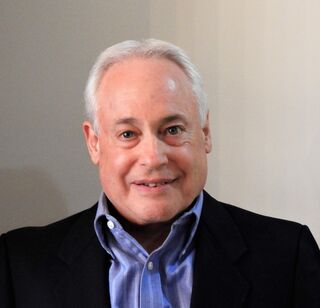Career
How to Find Your Purpose in These Challenging Times
To live more authentically we must discover, act, and plan our purpose.
Posted May 22, 2021 Reviewed by Vanessa Lancaster
Key points
- Knowing the underlying motivation and objective of our lives helps us develop a sense of purpose and deal with challenging times.
- Achieving objectives, starts with a comprehensive plan of what accomplishments we want people to remember us by.
- If objectives are not clear, we choose wrong actions, wrong purpose, and get further from what we truly value and want to be remembered for.

Having a sense of purpose helps us deal with challenging times and cope with stressors in our lives (Berns-Zare, 2021; Frankl, 1984; Hill et al., 2018). Research has related a sense of purpose to better health and well-being, happiness, and cognitive ability, as well as greater hope and even higher income (Pfund & Hill, 2018). Researchers have found that in the wake of the Covid-19 pandemic, we can regain our sense of purpose through greater engagement in our work, education, and relationships (Burrow & Hill, 2020). But what inspires that engagement in the first place? How do we find our purpose in these challenging times?
To answer this question, I contacted the executive coach and business consultant Barry Laub. For years, he saw companies hire consultants for new training and goal-setting programs. He concluded that the results didn’t last. These programs didn’t work because, “Everything that was going on was working from an external place, instead of an internal place” (personal communication, 2021). These companies were setting goals without encouraging people to connect with their genuine sense of purpose.
Dedicating himself to helping people find their purpose, Barry Laub started a radio show, “Whose Life Are You Living?” He began offering workshops, presenting a three-step process to help people get beyond their external conditioning and begin living more authentically.
He calls this process POP, for Purpose, Objective, and Plan.
1. First, to discover their objective, he asks people to reflect on the legacy they’d like to leave, what they want to be remembered for, and the difference they made.
2. The next step is purpose, “Anything you say, do, or participate in needs to be tied into achieving that objective.”
3. “The final P,” he says, “...is putting that together with a plan.”
In his work, Laub helps people discover their “real Why,” the underlying motivation and objective of their lives. He asks them to imagine themselves looking back on their lives, listening to their eulogy, and asking, “What do you want people to say about your character? What do you want them to say about what you have accomplished?” And if people realize they’re not who they really want to be, he says, “Then let's work on that. Because that's going to be the objective we're going to be shooting for in everything that you do.”
Living with purpose has been seen as living with a sense of calling (Dreher, 2016). Most of us have jobs or careers defined by salary, income, and status. But these are externals. Those of us with a sense of calling find meaning by following our hearts. Then we find purpose, joy, and fulfillment in what we do—whether it’s a paid position, volunteer work, or in our personal lives. And having this sense of meaning enables us to flourish (Seligman, 2004).
There are always people in our lives who tell us what we “should” be doing. In my book, Your Personal Renaissance (Dreher, 2008), I describe how when Michelangelo was a boy, his father would beat him whenever he caught him drawing, insisting that his sons work in the fabric business to bring money into the family. But, fortunately, Michelangelo persisted, following his calling to become one of the greatest artists of all time.
Today, with the external conditioning all around us from our families to our communities, to the incessant reinforcement of the media, it’s all too easy to get distracted from the truth of our calling, our authentic objective in life. Barry Laub says that if our objective is not clear, we’re going to choose the wrong actions, the wrong purpose, getting further and further from what we truly value and what we really want to be remembered for.
Becoming clear about our objective can be difficult because of all the distractions in our culture, emphasizing externals. Barry Laub says that we need support to follow through with the POP process—“a mentor, a guide, a coach, someone to hold you accountable for yourself.”
A mentor, coach, or therapist, wise friend, or support group, can help you see beyond your external conditioning and follow through with your purpose. But the first step is looking deep within yourself and asking, “What do I really value? What do I really want?” “What really gets me excited?” That is your objective.
________________
This post is for informational purposes and should not substitute for psychotherapy with a qualified professional.
References
Berns-Zare, I. (2021, January 5). 4 pathways to seek greater purpose in 2021. Psychology Today, https://www.psychologytoday.com/us/blog/flourish-and-thrive/202101/4-pathways-seek-greater-purpose-in-2021
Burrow, A. L., & Hill, P. L. (2020). Purpose by design or disaster: Preserving a sense of purpose amid environmental uncertainty. Journal of Environmental Psychology, 69, 101436.
Dreher, D. (2008). Your Personal Renaissance. Cambridge, MA: Da Capo.
Dreher, D. (2016, December 17). Finding your calling. Psychology Today, https://www.psychologytoday.com/us/blog/your-personal-renaissance/201612/finding-your-calling
Frankl, V.E. (1984). Man’s search for meaning. New York, NY: Washington Square Press. Originally published in 1959.
Hill, P. L., Sin, N. L., Turiano, N. A., Burrow, A. L., & Almeida, D. M. (2018). Sense of purpose moderates the associations between daily stressors and daily well-being. Annals of Behavioral Medicine, 52(8), 724-729.
Laub, B. (2021, May 5). Personal communication. All quotes from Barry Laub are from this interview. For more information about his work, see https://www.linkedin.com/in/barrylaub/
Pfund, G. N., & Hill, P. L. (2018). The multifaceted benefits of purpose in life. The International Forum for Logotherapy, 41, 27-37.
Seligman, M. E. P. (2004). Authentic Happiness. New York, NY: Atria Books.




